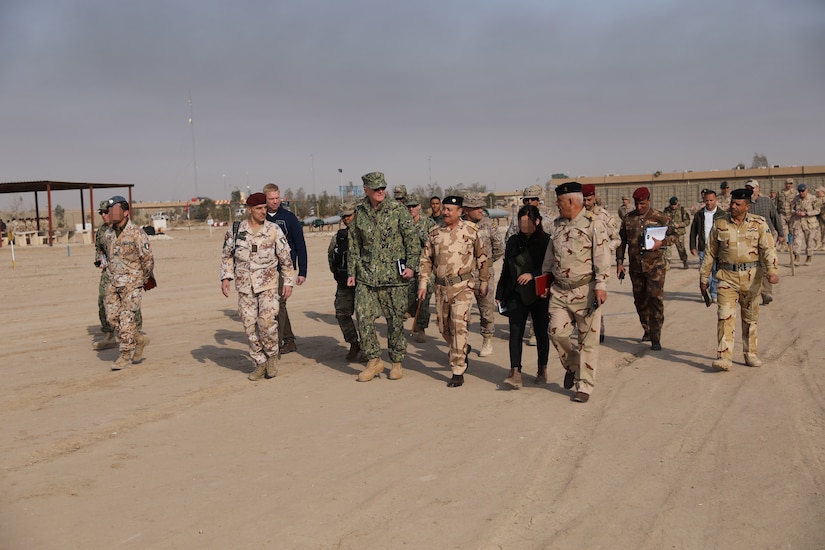By Terri Moon Cronk, DoD News, Defense Media Activity
WASHINGTON -- A recent report confirms the unintentional
deaths of 105 civilians in June as a result of coalition operations against the
Islamic State of Iraq and Syria, a total that includes 77 deaths reported by
Amnesty International, the deputy commander for strategy and support for
Combined Joint Task Force Operation Inherent Resolve told Pentagon reporters
today.
British Army Maj. Gen. Felix Gedney spoke via teleconference
from Baghdad, and addressed the report of civilian casualties in Iraq and Syria
during June, which was published July 26.
“The coalition makes every effort to avoid civilian deaths
on the battlefield and to minimize the impact of our operations on civilian
populations and infrastructure,” he said. “But the reality of the fight against
ISIS and the brutality of this enemy has made it impossible to avoid a risk to
the civilian population in the areas being liberated.”
He said he spoke on behalf of all coalition service members,
from privates to the most senior leaders, when noting that “such tragic
occurrences are deeply felt throughout our ranks and push us all to do all we
can to minimize these instances.”
“We strive to ensure the safety of the civilians that we are
here fighting to protect,” he added.
Evil Enemies
“We must also remember that the work of holding the coalition
to account for our actions, an endeavor that we welcome and encourage, does not
diminish the evil and brutality of the enemies we seek to defeat,” Gedney said.
Crimes against humanity and the violation of international
humanitarian law and the law of armed conflict are ISIS' routine modus
operandi, the general told reporters.
“Those who live under their tyrannical rule endure a
shocking level of violence to force conformity to a radical belief, a tactic
which they sought to export across the world,” Gedney said of the terrorist
organization. “And when faced by the superiority of the [Iraqi security forces
and the Syrian Democratic Forces], ISIS has exploited the innocent, the unarmed
and the weak as a means to slow down the forces determined and capable to
defeat them.”
Coalition Works to Minimize Deaths
And as the U.S.-led coalition works to minimize the risk to
noncombatants, ISIS is doing all it can “to maximize the number of innocent
civilians killed,” he said.
Holding the coalition accountable for its actions in this
war must be informed by facts and understanding, the deputy commander
emphasized.
“We have said it many times, and it bears repeating: We work
to make this campaign the most transparent in history, and we plan and execute
our operations … to minimize our impact on the populations that we are fighting
to protect,” he said.
Force allocations that are not grounded on readily available
information do a grave disservice not only to the civilians who have had to
live through the trauma induced by ISIS, but also to the countless service
members from the Syrian Democratic Forces, the Iraqi security forces and the 26
troop-contributing nations are on the front line in the global fight against
ISIS every day, Gedney said.






